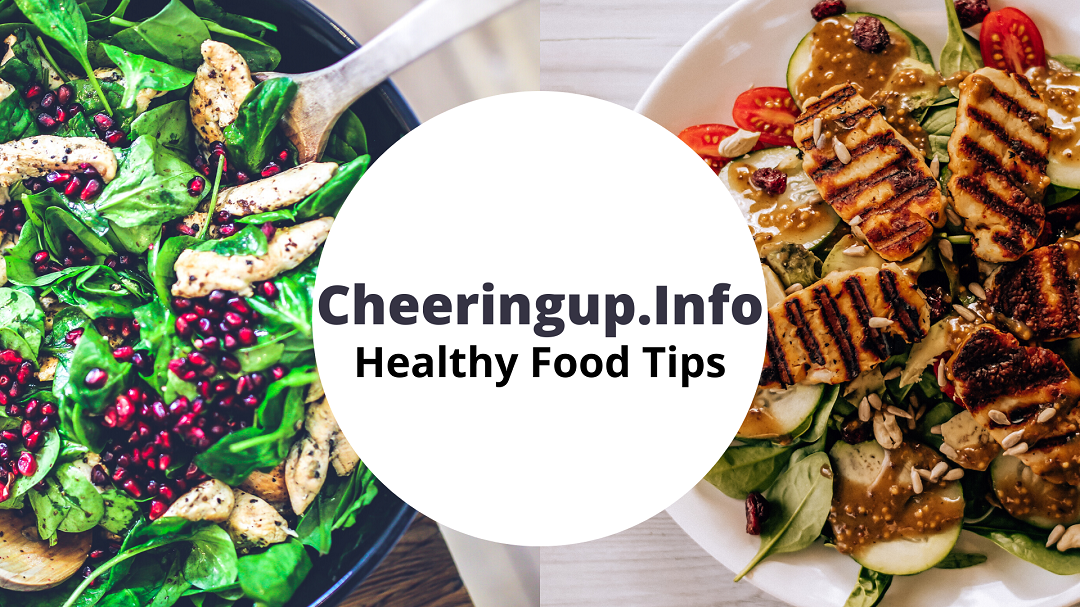Understanding Vitamin B12 Deficiency: Symptoms and Solutions
Vitamin B12, often referred to as cobalamin, plays a crucial role in maintaining our overall health and well-being. This water-soluble vitamin is essential for various bodily functions, including nerve cell health, DNA synthesis, and the formation of red blood cells. Despite its importance, many individuals around the world suffer from Vitamin B12 deficiency, which can lead to a range of symptoms and health complications.
The Importance of Vitamin B12: Vitamin B12 is one of the key players in maintaining our body’s proper functioning. It aids in the metabolism of fatty acids and amino acids, supports the nervous system by producing the protective myelin sheath around nerves, and is integral to the synthesis of DNA, RNA, and red blood cells. As our body cannot produce Vitamin B12 on its own, we rely on dietary sources and, in some cases, supplements to meet our B12 needs.
Symptoms of Vitamin B12 Deficiency:
Vitamin B12 deficiency can manifest in a variety of ways, often due to its role in various bodily functions. Recognising these symptoms is essential for timely intervention and treatment. Here are some common symptoms associated with Vitamin B12 deficiency:
- Fatigue and Weakness: Feeling tired and weak, even after a good night’s sleep, is a hallmark symptom of B12 deficiency. This occurs because the body is unable to produce enough red blood cells to carry oxygen efficiently.
- Numbness and Tingling: Vitamin B12 is vital for nerve health, and its deficiency can lead to tingling, numbness, or a “pins and needles” sensation, especially in the extremities.
- Difficulty Walking and Balance Issues: Neurological symptoms can extend to problems with coordination, balance, and walking. Some individuals may experience an unsteady gait or even difficulty in walking straight.
- Pale or Jaundiced Skin: Reduced red blood cell production due to B12 deficiency can result in pale or even slightly yellowish skin, a condition known as jaundice.
- Cognitive Impairment: Cognitive symptoms can include memory problems, difficulty concentrating, and mood changes, which can mimic signs of depression or dementia.
- Mouth and Tongue Changes: Some people might notice soreness or a burning sensation in the mouth, as well as glossitis, which is an inflammation of the tongue.
- Heart Palpitations and Shortness of Breath: B12 deficiency can lead to anemia, causing the heart to pump more blood to compensate for the reduced oxygen-carrying capacity of the blood. This can result in heart palpitations and shortness of breath.
Recognising these symptoms early on is crucial for proper diagnosis and treatment. If you suspect you might have a Vitamin B12 deficiency, consult a healthcare professional for appropriate testing.
Effects of Severe Vitamin B12 Deficiency on the Body:
When Vitamin B12 deficiency goes untreated for an extended period, it can have significant and potentially irreversible effects on the body. Severe deficiency can lead to the following health complications:
- Megaloblastic Anemia: Insufficient Vitamin B12 affects red blood cell production, causing them to become larger than normal and unable to function properly. This condition, known as megaloblastic anemia, results in reduced oxygen transport to tissues and organs, leading to fatigue, weakness, and other related symptoms.
- Neurological Damage: Vitamin B12 is crucial for maintaining the health of nerve cells and the protective myelin sheath that surrounds them. Prolonged deficiency can result in neurological damage, leading to symptoms like numbness, tingling, muscle weakness, and difficulty walking.
- Cognitive Decline: Severe B12 deficiency has been associated with cognitive decline, including memory problems, difficulty concentrating, and confusion. In some cases, these cognitive changes can resemble early signs of dementia.
- Peripheral Neuropathy: The nerves in the extremities can be particularly vulnerable to damage caused by B12 deficiency. Peripheral neuropathy can result in pain, tingling, and loss of sensation in the hands and feet.
- Cardiovascular Complications: Anemia resulting from B12 deficiency can strain the cardiovascular system. The heart might need to work harder to pump oxygen-depleted blood, potentially leading to an increased risk of heart palpitations, heart murmurs, and even heart failure.
- Gastrointestinal Disturbances: Inflammation and damage to the gastrointestinal tract can occur due to B12 deficiency. This can lead to digestive issues, such as nausea, diarrhea, and a decreased appetite.
- Optic Nerve Damage: Rarely, severe B12 deficiency can cause damage to the optic nerve, leading to vision problems and even blindness if left untreated.
It’s important to note that the severity of these effects can vary from person to person, and not everyone will experience all of these complications. However, the risks underscore the significance of addressing Vitamin B12 deficiency promptly through appropriate dietary changes, supplements, or medical intervention.
Solutions for Treating Vitamin B12 Deficiency:
If you suspect or have been diagnosed with Vitamin B12 deficiency, there are several effective solutions to address the issue and restore your B12 levels to a healthy range. Here are some strategies to consider:
- Dietary Changes: Incorporating B12-rich foods into your diet can help boost your B12 levels naturally. Foods high in Vitamin B12 include animal products such as meat (especially organ meats like liver), fish, eggs, and dairy products.
- Supplements: Vitamin B12 supplements are readily available and can be an effective way to increase your B12 intake. They come in various forms, including pills, sublingual tablets, and injections. Your healthcare provider can recommend the appropriate dosage and form based on your needs.
- Intramuscular Injections: In cases of severe deficiency or when oral absorption is impaired, healthcare professionals may administer Vitamin B12 injections directly into the muscle. This method allows for rapid absorption of the vitamin.
- Sublingual Tablets: Sublingual B12 tablets are placed under the tongue and dissolve quickly, allowing for absorption directly into the bloodstream. This can be an effective option for individuals with absorption issues.
- Lifestyle Modifications: Limiting alcohol consumption and avoiding smoking can support your body’s ability to absorb and utilize Vitamin B12 effectively.
- Regular Monitoring: If you’re diagnosed with B12 deficiency, it’s important to work closely with your healthcare provider to monitor your progress and adjust your treatment plan as needed.
The Fastest Way to Fix B12 Deficiency:
The fastest way to address severe Vitamin B12 deficiency is often through intramuscular injections or sublingual tablets. These methods allow for direct absorption of the vitamin into the bloodstream, bypassing potential absorption issues in the digestive tract. However, it’s essential to consult your healthcare provider before making any decisions about treatment methods, as individual needs can vary.
Foods to Avoid if You Have B12 Deficiency:
While there aren’t specific foods that need to be completely avoided, it’s advisable to reduce your consumption of processed foods, as they may contain additives that interfere with nutrient absorption. Additionally, limiting alcohol intake and avoiding excessive caffeine can support your body’s ability to absorb Vitamin B12.
In conclusion, Vitamin B12 deficiency can have a range of symptoms and potential health complications. Recognising the signs, understanding the effects, and implementing appropriate solutions can help restore your B12 levels and improve your overall well-being. Always consult with a healthcare professional for personalised guidance and treatment recommendations.
Preventing Vitamin B12 Deficiency:
Prevention is key when it comes to Vitamin B12 deficiency. Taking steps to ensure you’re getting an adequate intake of this essential nutrient can help you avoid deficiency-related symptoms and complications. Here are some strategies for preventing Vitamin B12 deficiency:
- Balanced Diet: Incorporate B12-rich foods into your diet regularly. Opt for lean meats, fish, poultry, eggs, and dairy products. For individuals following a plant-based diet, fortified foods like plant-based milk, breakfast cereals, and nutritional yeast can provide a source of B12.
- Supplementation: If you’re at risk of deficiency due to dietary restrictions or absorption issues, consider taking a Vitamin B12 supplement as recommended by your healthcare provider.
- Regular Check-Ups: Schedule routine check-ups with your healthcare provider to monitor your nutrient levels. Early detection of low B12 levels can lead to prompt intervention and prevention of severe deficiency.
- Be Mindful of Age: As we age, our ability to absorb Vitamin B12 from food may decrease. Therefore, older adults should pay extra attention to their B12 intake and consider supplementation if needed.
- Manage Underlying Conditions: Certain medical conditions, such as pernicious anemia and gastrointestinal disorders, can affect B12 absorption. Managing these conditions with your healthcare provider’s guidance is essential.
- Avoid Self-Diagnosis: If you suspect you have a B12 deficiency, avoid self-diagnosis and self-treatment. Consult a healthcare professional for proper assessment and recommendations.
Conclusion:
Vitamin B12 deficiency is a serious health concern that can lead to a range of symptoms and complications affecting various aspects of your well-being. Understanding the symptoms, effects, and solutions associated with B12 deficiency empowers you to take proactive steps towards maintaining optimal health. Whether through dietary adjustments, supplementation, or medical intervention, addressing B12 deficiency can significantly improve your quality of life.
Remember, your healthcare provider is your best resource for personalised guidance on preventing, diagnosing, and treating Vitamin B12 deficiency. By working together, you can ensure that you’re taking the necessary steps to support your body’s B12 needs and overall health.
More lifestyle improvement articles videos and reviews
B12 Deficiency Symptoms & Solutions

